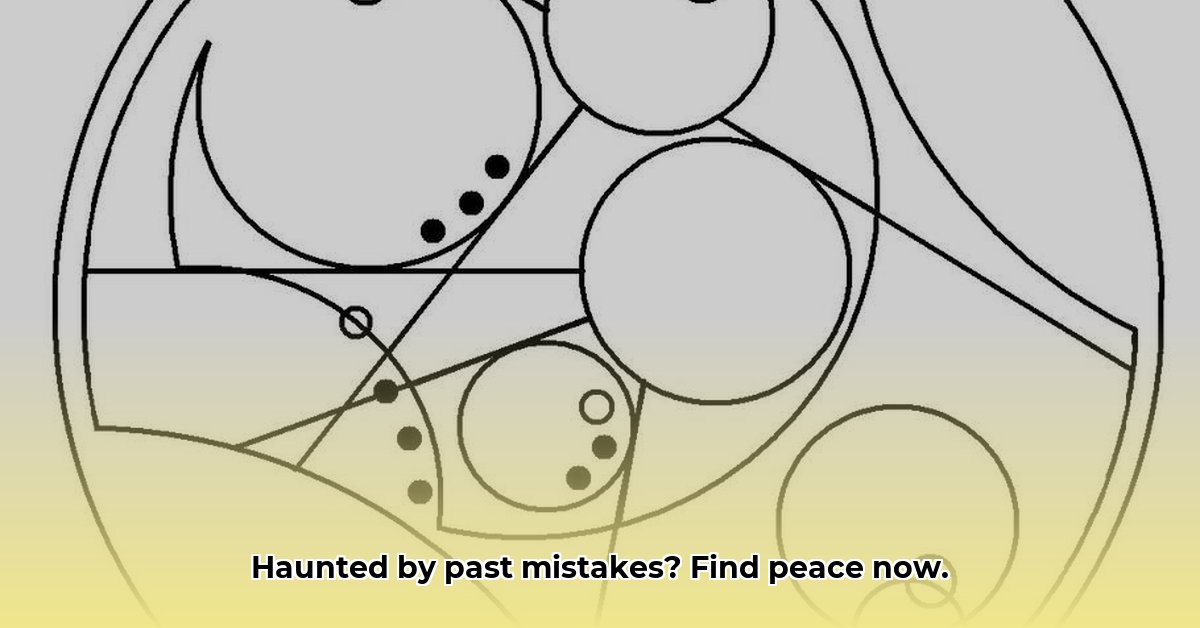Acknowledging the Hurt and Seeking Atonement
We all make mistakes. It’s a fundamental part of the human experience. Whether a minor slip-up or a significant transgression, the weight of regret can be a heavy burden. This article offers a compassionate guide to navigating the complex journey of atonement, providing practical steps and insights for finding forgiveness and peace.
Understanding Atonement: A Multifaceted Perspective
Atonement, in its simplest form, is about making amends for past wrongdoings. However, it’s not merely about fixing the immediate damage. It’s a profound process of addressing underlying causes, acknowledging the hurt inflicted, and ultimately, transforming oneself. This journey can be approached from various perspectives:
Religious Perspectives
Many faiths offer a structured framework for atonement, often involving confession, repentance, and penance. Confession provides a space to acknowledge transgressions, while repentance signifies a turning away from harmful behavior. Penance can involve actions demonstrating the sincerity of repentance. Prayer offers solace, guidance, and a connection to the divine. These practices, collectively, create a path toward divine and self-forgiveness. Resources for further exploration include:
- Mere Christianity by C.S. Lewis offers clear explanations of complex theological concepts.
- Exploring the writings of Saint Augustine and Thomas Aquinas can provide deeper insights into religious perspectives on atonement.
Secular Perspectives
A secular approach to atonement emphasizes taking responsibility, making amends, and changing behavior. It starts with honestly acknowledging the harm caused without succumbing to self-blame. Making amends might involve a sincere apology and efforts to repair the damage—financial, emotional, or otherwise. Changing behavior is crucial, as an apology without changed actions lacks sincerity. Self-forgiveness, often the most challenging step, involves recognizing one’s humanity and extending self-compassion. Therapy can be invaluable in navigating these emotional challenges. The work of Brené Brown on vulnerability and shame offers valuable insights into this secular perspective.
A Practical Guide to Making Amends
These steps apply to both religious and secular approaches:
-
Acknowledge the Harm: Honestly assess the impact of your actions on others.
-
Express Remorse: Offer a genuine apology focused on the pain caused, not on self-justification.
-
Make Restitution (If Possible): Explore concrete actions to repair the damage. This might involve replacing a damaged item, repaying a debt, or offering emotional support. Even if full restitution isn’t possible, the intent matters.
-
Change Your Behavior: Demonstrate your commitment to change through actions, not just words.
-
Seek Forgiveness (If Appropriate and Possible): Understand that forgiveness is a gift, not a right. Respect the other person’s decision.
-
Practice Self-Compassion: Treat yourself with kindness. Recognize that mistakes are part of being human.
The Journey of Forgiveness
Forgiveness, both from others and from ourselves, is a process that unfolds over time. It requires patience, self-compassion, and consistent effort. Letting go of the past without forgetting its lessons is key to moving forward. The teachings of Thich Nhat Hanh on mindfulness and compassion can be helpful in this process.
Maintaining Positive Change
Making amends isn’t a one-time event; it’s a commitment to growth. Ongoing self-reflection, mindfulness, and continued effort are essential for navigating life’s challenges and avoiding past patterns. Journaling, meditation, or feedback from trusted sources can be invaluable tools.
Finding Support and Resources
Navigating this path alone can be challenging. Numerous resources are available to provide guidance:
- Therapy: Offers a safe space to process emotions and develop coping mechanisms.
- Support Groups: Provide a sense of community and shared experience. (Search online for relevant support groups in your area.)
- Spiritual Counseling: Offers guidance from a faith-based perspective. (Consult with your religious community for referrals.)
- Self-Help Literature: Provides tools and strategies for personal growth. (Explore reputable publishers and authors specializing in self-help and personal development.)
Why Seek Redemption?
Seeking redemption—making things right after we’ve erred—is a powerful force for healing and growth. It benefits not only those we’ve harmed but also ourselves. It’s about taking ownership of our actions, understanding their impact, and actively working to make amends. This process can involve apologizing, making restitution, changing behavior, and cultivating self-forgiveness.
Taking ownership can be challenging but is crucial for authentic atonement. It involves confronting our regrets and acknowledging our mistakes without making excuses. This honesty with ourselves paves the way for genuine change.
A sincere apology goes beyond mere words. It’s about empathy, understanding the pain we’ve caused, and expressing genuine remorse. While forgiveness isn’t guaranteed, the act of apologizing can be healing in itself, releasing the burden of guilt and shame.
Redemption isn’t about erasing the past; it’s about growth and transformation. It’s about learning from our mistakes, changing our behavior, and striving to become better versions of ourselves.
While an apology is important, sometimes it’s not enough. Making amends often requires concrete actions to repair the damage caused. This could involve restitution, providing practical assistance, or altering behaviors that contributed to the problem. These actions demonstrate a sincere desire to make things right.
Forgiveness, both offering and receiving it, is a powerful force for healing. Self-forgiveness, while often the most difficult, is equally crucial. It’s about accepting our imperfections and extending compassion to ourselves.
The path to redemption is a journey, not a destination. It requires humility, self-reflection, and a recognition of our shared humanity. It’s a continuous process of learning, growing, and striving to live a more ethical and responsible life. While research continues to explore the nuances of redemption and its impact on well-being, the pursuit of peace and reconciliation makes this journey invaluable.
- How to Stop Apps From Running in the Background to Boost Your - December 1, 2025
- How To Move Apps On Your Droid For Better Organization - November 30, 2025
- How to Move Apps on Android for Better Organization - November 29, 2025










